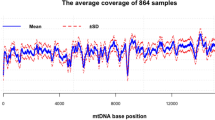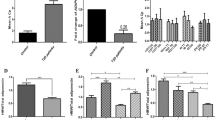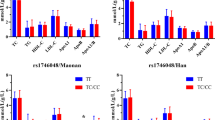Abstract
Objective:
Human uncoupling proteins 2 and 3 (UCP2 and UCP3) are two mitochondrial proteins that are involved in the control of metabolism of fatty acid and possibly protect against oxidative damage. The aim of this study was to analyze genetic associations of four polymorphisms of the UCP2 and UCP3 genes with insulin, leptin concentration and obesity in Taiwan aborigines.
Research methods:
Four polymorphisms were compared in 324 obese (body mass index (BMI) ⩾30 kg/m2) and overweight (30>BMI ⩾25 kg/m2) subjects, and 114 normal weight subjects (BMI <25 kg/m2) in an aboriginal community of southern Taiwan. Anthropometric characteristics and fasting levels of insulin, leptin, triglycerides and cholesterol were measured.
Results:
Before and after adjusting for age distribution, only the Val55 allele in exon 4 of the UCP2 gene increased the risk of overweight and obesity (adjusted odds ratio (OR)=2.02, P=0.004) in comparison with Ala55. UCP2 V55V is also associated with higher fasting insulin levels than A55V (P=0.01) and A55A (P=0.04) in the obese/overweight group. Using the COCAPHASE program of the UNPHASED software, haplotype analysis of three single nucleotide polymorphisms (A55V-G866A-C-55T) revealed that A-G-C (73% in obese subjects and 77% in controls) was the most common haplotype and that the haplotype V-A-T (13% in obese subjects and 5% in controls) was significantly increased in obese and overweight subjects (BMI ⩾25 kg/m2) (OR=2.62, P<0.001).
Discussions:
UCP2 A55V variant might predispose to obesity and Val55 allele to confer population-attributable risk for 9.5% of obese disorders and increase insulin concentrations. The V-A-T haplotype within UCP2-UCP3 gene cluster is also significantly associated with obesity in Paiwan aborigines.
This is a preview of subscription content, access via your institution
Access options
Subscribe to this journal
Receive 12 print issues and online access
$259.00 per year
only $21.58 per issue
Buy this article
- Purchase on Springer Link
- Instant access to full article PDF
Prices may be subject to local taxes which are calculated during checkout
Similar content being viewed by others
References
Wolkow CA, Iser WB . Uncoupling protein homologs may provide a link between mitochondria, metabolism and lifespan. Ageing Res Rev 2006; 5: 196–208.
Sullivan PG, Rippy NA, Dorenbos K, Concepcion RC, Agarwal AK, Rho JM . The ketogenic diet increases mitochondrial uncoupling protein levels and activity. Ann Neurol 2004; 55: 576–580.
Esterbauer H, Schneitler C, Oberkofler H, Ebenbichler C, Paulweber B, Sandhofer F et al. A common polymorphism in the promoter of UCP2 is associated with decreased risk of obesity in middle-aged humans. Nat Genet 2001; 28: 178–183.
Fleury C, Neverova M, Collins S, Raimbault S, Champigny O, Levi-Meyrueis C et al. Uncoupling protein-2: a novel gene linked to obesity and hyperinsulinemia. Nat Genet 1997; 15: 269–272.
Vidal-Puig A, Solanes G, Grujic D, Flier JS, Lowell BB . UCP3: an uncoupling protein homologue expressed preferentially and abundantly in skeletal muscle and brown adipose tissue. Biochem Biophys Res Commun 1997; 235: 79–82.
Oberkofler H, Liu YM, Esterbauer H, Hell E, Krempler F, Patsch W . Uncoupling protein-2 gene: reduced mRNA expression in intraperitoneal adipose tissue of obese humans. Diabetologia 1998; 41: 940–946.
Chan CB, De Leo D, Joseph JW, McQuaid TS, Ha XF, Xu F et al. Increased uncoupling protein-2 levels in beta-cells are associated with impaired glucose-stimulated insulin secretion: mechanism of action. Diabetes 2001; 50: 1302–1310.
Zhang CY, Baffy G, Perret P, Krauss S, Peroni O, Grujic D et al. Uncoupling protein-2 negatively regulates insulin secretion and is a major link between obesity, beta cell dysfunction, and type 2 diabetes. Cell 2001; 105: 745–755.
Harper ME, Dent R, Monemdjou S, Bezaire V, Van Wyck L, Wells G et al. Decreased mitochondrial proton leak and reduced expression of uncoupling protein 3 in skeletal muscle of obese diet-resistant women. Diabetes 2002; 51: 2459–2466.
Pratley RE, Thompson DB, Prochazka M, Baier L, Mott D, Ravussin E et al. An autosomal genomic scan for loci linked to prediabetic phenotypes in Pima Indians. J Clin Invest 1998; 101: 1757–1764.
Millet L, Vidal H, Andreelli F, Larrouy D, Riou JP, Ricquier D et al. Increased uncoupling protein-2 and -3 mRNA expression during fasting in obese and lean humans. J Clin Invest 1997; 100: 2665–2670.
Walder K, Norman RA, Hanson RL, Schrauwen P, Neverova M, Jenkinson CP et al. Association between uncoupling protein polymorphisms (UCP2-UCP3) and energy metabolism/obesity in Pima Indians. Hum Mol Genet 1998; 7: 1431–1435.
Bouchard C, Perusse L, Chagnon YC, Warden C, Ricquier D . Linkage between markers in the vicinity of the uncoupling protein 2 gene and resting metabolic rate in humans. Hum Mol Genet 1997; 6: 1887–1889.
Krempler F, Esterbauer H, Weitgasser R, Ebenbichler C, Patsch JR, Miller K et al. A functional polymorphism in the promoter of UCP2 enhances obesity risk but reduces type 2 diabetes risk in obese middle-aged humans. Diabetes 2002; 51: 3331–3335.
Buemann B, Schierning B, Toubro S, Bibby BM, Sorensen T, Dalgaard L et al. The association between the val/ala-55 polymorphism of the uncoupling protein 2 gene and exercise efficiency. Int J Obes Relat Metab Disord 2001; 25: 467–471.
Astrup A, Toubro S, Dalgaard LT, Urhammer SA, Sorensen TI, Pedersen O . Impact of the v/v 55 polymorphism of the uncoupling protein 2 gene on 24-h energy expenditure and substrate oxidation. Int J Obes Relat Metab Disord 1999; 23: 1030–1034.
Cassell PG, Saker PJ, Huxtable SJ, Kousta E, Jackson AE, Hattersley AT et al. Evidence that single nucleotide polymorphism in the uncoupling protein 3 (UCP3) gene influences fat distribution in women of European and Asian origin. Diabetologia 2000; 43: 1558–1564.
Otabe S, Clement K, Dina C, Pelloux V, Guy-Grand B, Froguel P et al. A genetic variation in the 5′ flanking region of the UCP3 gene is associated with body mass index in humans in interaction with physical activity. Diabetologia 2000; 43: 245–249.
Herrmann SM, Wang JG, Staessen JA, Kertmen E, Schmidt-Petersen K, Zidek W et al. Uncoupling protein 1 and 3 polymorphisms are associated with waist-to-hip ratio. J Mol Med 2003; 81: 327–332.
Yanovski JA, Diament AL, Sovik KN, Nguyen TT, Li H, Sebring NG et al. Associations between uncoupling protein 2, body composition, and resting energy expenditure in lean and obese African American, white, and Asian children. Am J Clin Nutr 2000; 71: 1405–1420.
D'Adamo M, Perego L, Cardellini M, Marini MA, Frontoni S, Andreozzi F et al. The −866A/A genotype in the promoter of the human uncoupling protein 2 gene is associated with insulin resistance and increased risk of type 2 diabetes. Diabetes 2004; 53: 1905–1910.
Kubota T, Mori H, Tamori Y, Okazawa H, Fukuda T, Miki M et al. Molecular screening of uncoupling protein 2 gene in patients with noninsulin-dependent diabetes mellitus or obesity. J Clin Endocrinol Metab 1998; 83: 2800–2804.
Shiinoki T, Suehiro T, Ikeda Y, Inoue M, Nakamura T, Kumon Y et al. Screening for variants of the uncoupling protein 2 gene in Japanese patients with non-insulin-dependent diabetes mellitus. Metabolism 1999; 48: 581–584.
Tu N, Chen H, Winnikes U, Reinert I, Marmann G, Pirke KM et al. Structural organization and mutational analysis of the human uncoupling protein-2 (hUCP2) gene. Life Sci 1999; 64: PL41–PL50.
Dalgaard LT, Sorensen TI, Andersen T, Hansen T, Pedersen O . An untranslated insertion variant in the uncoupling protein 2 gene is not related to body mass index and changes in body weight during a 26-year follow-up in Danish Caucasian men. Diabetologia 1999; 42: 1413–1416.
Otabe S, Clement K, Rich N, Warden C, Pecqueur C, Neverova M et al. Mutation screening of the human UCP 2 gene in normoglycemic and NIDDM morbidly obese patients: lack of association between new UCP 2 polymorphisms and obesity in French Caucasians. Diabetes 1998; 47: 840–842.
Mancini FP, Sabatino L, Colantuoni V, Pasanisi F, Finelli C, Contaldo F et al. Variants of uncoupling protein-2 gene and obesity: interaction with peroxisome proliferator-activated receptorgamma2. Clin Endocrinol (Oxford) 2003; 59: 817–822.
Wang TN, Huang MC, Chang WT, Ko AM, Tsai EM, Liu CS et al. G-2548A polymorphism of the leptin gene is correlated with extreme obesity in Taiwanese aborigines. Obesity (Silver Spring) 2006; 14: 183–187.
Sesti G, Cardellini M, Marini MA, Frontoni S, D'Adamo M, Del Guerra S et al. A common polymorphism in the promoter of UCP2 contributes to the variation in insulin secretion in glucose-tolerant subjects. Diabetes 2003; 52: 1280–1283.
Fallin D, Schork NJ . Accuracy of haplotype frequency estimation for biallelic loci, via the expectation-maximization algorithm for unphased diploid genotype data. Am J Hum Genet 2000; 67: 947–959.
Dudbridge F . Pedigree disequilibrium tests for multilocus haplotypes. Genet Epidemiol 2003; 25: 115–121.
Yu X, Jacobs Jr DR, Schreiner PJ, Gross MD, Steffes MW, Fornage M . The uncoupling protein 2Ala55Val polymorphism is associated with diabetes mellitus: the CARDIA study. Clin Chem 2005; 51: 1451–1456.
Cusin I, Zakrzewska KE, Boss O, Muzzin P, Giacobino JP, Ricquier D et al. Chronic central leptin infusion enhances insulin-stimulated glucose metabolism and favors the expression of uncoupling proteins. Diabetes 1998; 47: 1014–1019.
Combatsiaris TP, Charron MJ . Downregulation of uncoupling protein 2 mRNA in white adipose tissue and uncoupling protein 3 mRNA in skeletal muscle during the early stages of leptin treatment. Diabetes 1999; 48: 128–133.
Zhou YT, Shimabukuro M, Koyama K, Lee Y, Wang MY, Trieu F et al. Induction by leptin of uncoupling protein-2 and enzymes of fatty acid oxidation. Proc Natl Acad Sci USA 1997; 94: 6386–6390.
Ukkola O, Tremblay A, Sun G, Chagnon YC, Bouchard C . Genetic variation at the uncoupling protein 1, 2 and 3 loci and the response to long-term overfeeding. Eur J Clin Nutr 2001; 55: 1008–1015.
van Rossum CT, Hoebee B, Seidell JC, Bouchard C, van Baak MA, de Groot CP et al. Genetic factors as predictors of weight gain in young adult Dutch men and women. Int J Obes Relat Metab Disord 2002; 26: 517–528.
Kimm SY, Glynn NW, Aston CE, Damcott CM, Poehlman ET, Daniels SR et al. Racial differences in the relation between uncoupling protein genes and resting energy expenditure. Am J Clin Nutr 2002; 75: 714–719.
Sweeney C, Murtaugh MA, Baumgartner KB, Byers T, Giuliano AR, Herrick JS et al. Insulin-like growth factor pathway polymorphisms associated with body size in Hispanic and non-Hispanic white women. Cancer Epidemiol Biomarkers Prev 2005; 14: 1802–1809.
Diamond JM . Taiwan's gift to the world. Nature 2000; 403: 709–710.
Cheng LS, Chiang SL, Tu HP, Chang SJ, Wang TN, Ko AM et al. Genomewide scan for gout in Taiwanese aborigines reveals linkage to chromosome 4q25. Am J Hum Genet 2004; 75: 498–503.
Wang WH, Chang SJ, Wang TN, Cheng LSC, Feng YP, Chen CJ et al. Complex segregation and linkage analysis of familial gout in taiwanese aborigines. Arthritis Rheum 2004; 50: 242–246.
Wang H, Chu WS, Lu T, Hasstedt SJ, Kern PA, Elbein SC . Uncoupling protein-2 polymorphisms in type 2 diabetes, obesity, and insulin secretion. Am J Physiol Endocrinol Metab 2004; 286: E1–E7.
Hesselink MK, Mensink M, Schrauwen P . Human uncoupling protein-3 and obesity: an update. Obes Res 2003; 11: 1429–1443.
Rousset S, Alves-Guerra MC, Mozo J, Miroux B, Cassard-Doulcier AM, Bouillaud F et al. The biology of mitochondrial uncoupling proteins. Diabetes 2004; 53 (Suppl 1): S130–S135.
Silverman EK, Palmer LJ . Case–control association studies for the genetics of complex respiratory diseases. Am J Respir Cell Mol Biol 2000; 22: 645–648.
Acknowledgements
This work was supported by grants from the National Health Research Institute (NHRI-EX90-8803PL), Kaohsiung Medical University (KMU92-Q-01) and the National Science Council (NSC 92-2320-B-037-037), Taiwan.
Author information
Authors and Affiliations
Corresponding author
Rights and permissions
About this article
Cite this article
Wang, T., Huang, M., Lin, H. et al. UCP2 A55V variant is associated with obesity and related phenotypes in an aboriginal community in Taiwan. Int J Obes 31, 1746–1752 (2007). https://doi.org/10.1038/sj.ijo.0803648
Received:
Revised:
Accepted:
Published:
Issue Date:
DOI: https://doi.org/10.1038/sj.ijo.0803648
Keywords
This article is cited by
-
Ethnic disparity in metabolic syndrome and related obesity and health behavior: a community study in Taiwan
Diabetology & Metabolic Syndrome (2021)
-
Unleash the Association of Mitochondrial Uncoupling Protein (UCP2) Promoter Variant (G-866A; rs659366) with Obesity: Stepping from a Case–Control Study to a Meta-analysis
Biochemical Genetics (2020)
-
Ethnic Disparities in Blood Pressure: A Population-based Study
Journal of Immigrant and Minority Health (2017)
-
Interactions between UCP2 SNPs and telomere length exist in the absence of diabetes or pre-diabetes
Scientific Reports (2016)
-
Association of the UCP polymorphisms with susceptibility to obesity: case–control study and meta-analysis
Molecular Biology Reports (2014)



